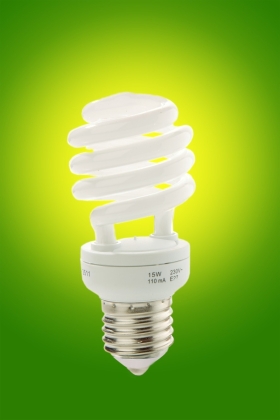How Do I Get Rid Of My Old Light Bulbs?
Recycling light bulbs can feel tricky. Some of us have vague memories of being told that throwing away lightbulbs was bad for the environment, but now it seems that some light bulbs can even be recycled. Often, paralysed by the choice whether to recycle or not, owners end up with a dusty collectio

Recycling light bulbs can feel tricky. Some of us have vague memories of being told that throwing away lightbulbs was bad for the environment, but now it seems that some light bulbs can even be recycled. Often, paralysed by the choice whether to recycle or not, owners end up with a dusty collection of bulbs taking up space in a barely-used drawer.

Incandescent Bulbs
Old style incandescent bulbs are not recyclable, and most be thrown away in the rubbish bin. Although they contain glass, don’t be tempted to recycle your old light bulbs with glass bottles or jars—the bulbs are not only made from a different kind of glass to bottles, but they also contain metal.
Alternatively, you can turn these bulbs into decorations—such as candle holders or plantpots.

Energy Efficient Bulbs
Energy efficient bulbs like fluorescent lamps or CFLs can be easily recycled. Not only do local recycling centre's have bins for them, major chain shops like Tesco or Ikea can also accept them. Just bring them with you when you go shopping.
Business who want to dispose of fluorescent tubes can contact their local authority for information on how to get rid of them, but generally the council will come out for a fee.

LEDs
Light bulb manufacturers and recycling centre's both generally accept LED bulb recycling. The lack of hazardous parts mean that it’s safe to be turned into something else—maybe even another bulb. To encourage recycling, some retail shops will even give you a voucher to use instore if you recycle enough bulbs.
However, one of the best things about LEDs is that they have an extremely long lifespan. This means less need to throw bulbs out and also less need to buy new bulbs as often. These bulbs can last for as long as 25 years, do not burn out often, and are helping to power down energy costs as well as save consumers money; both because they’re cheaper to buy than incandescent bulbs and also because they use less energy than other bulbs.
If this keeps up, soon we won’t need to recycle bulbs so often anyway. That’s probably the best option for the consumer, who won’t have to replace dead bulbs at anything like the rate they currently do, and who won’t have to remember to take dead bulbs to recycling centre's.
